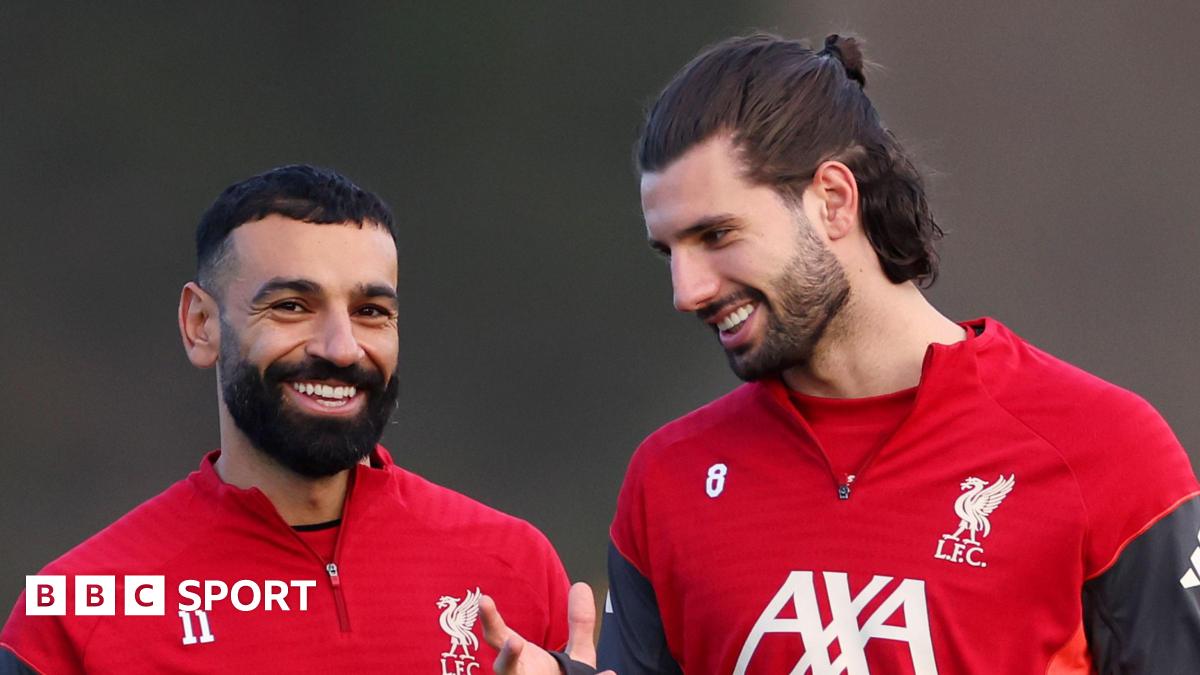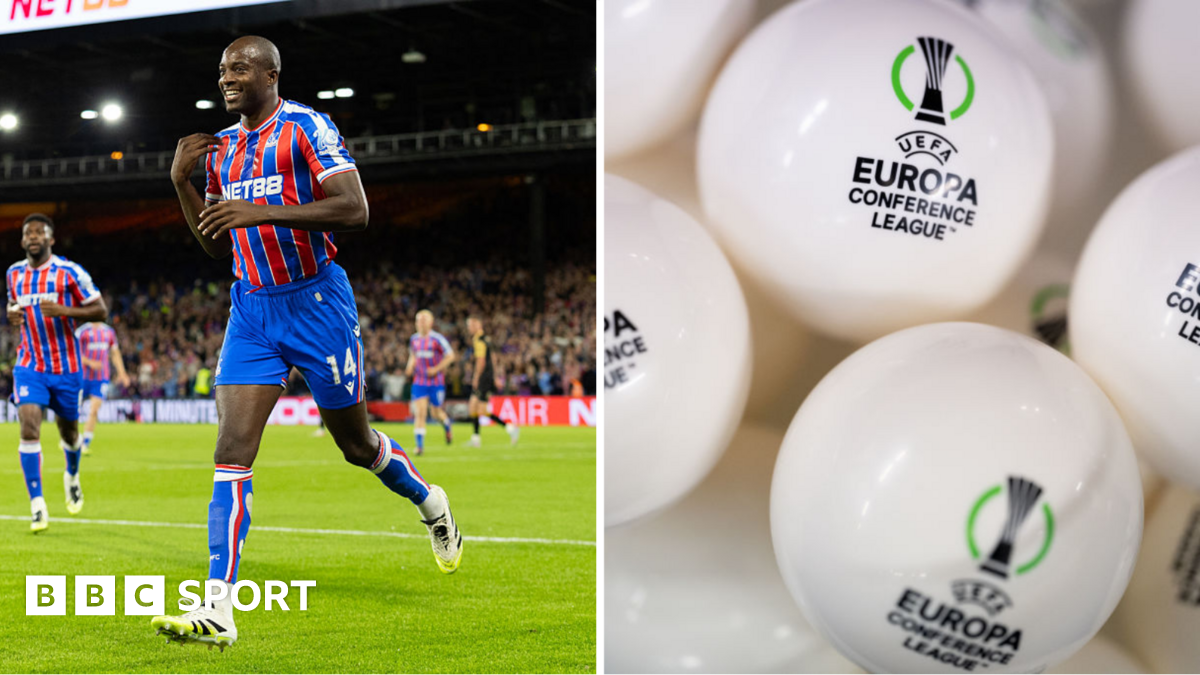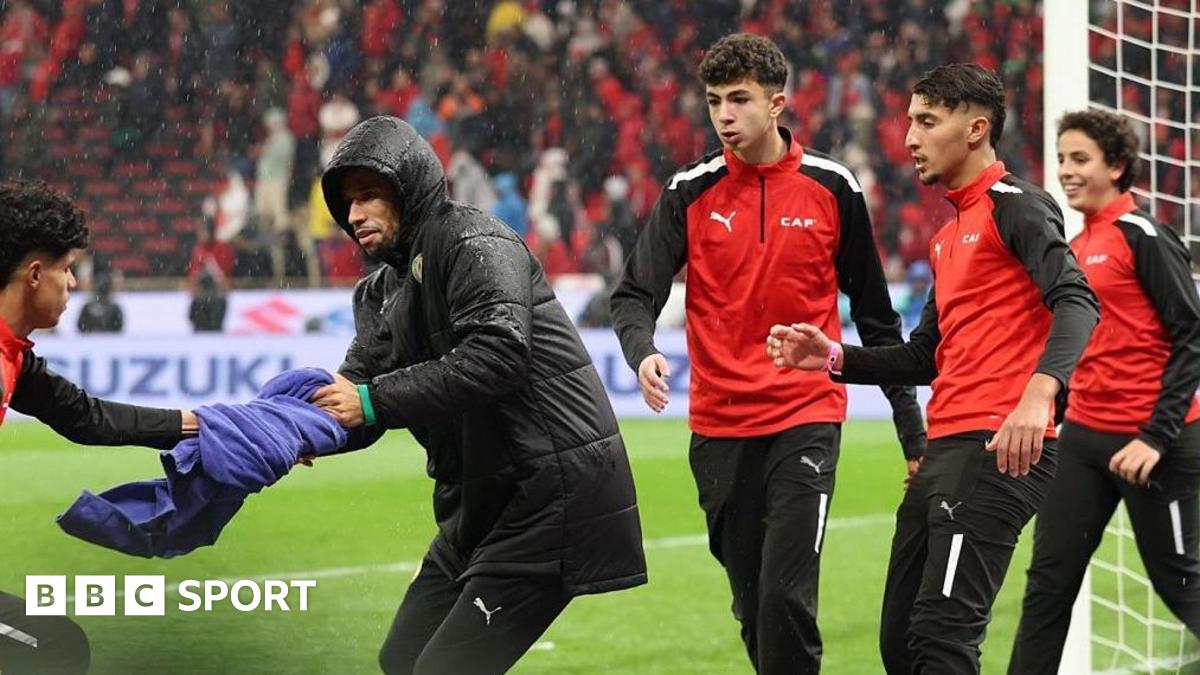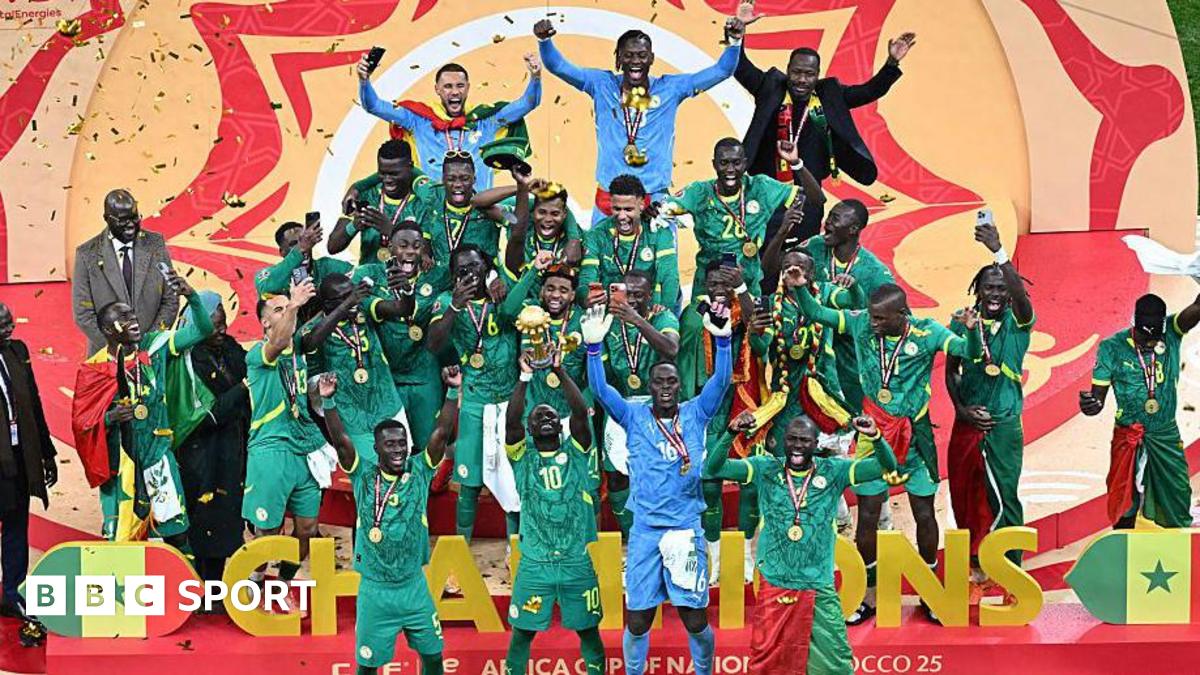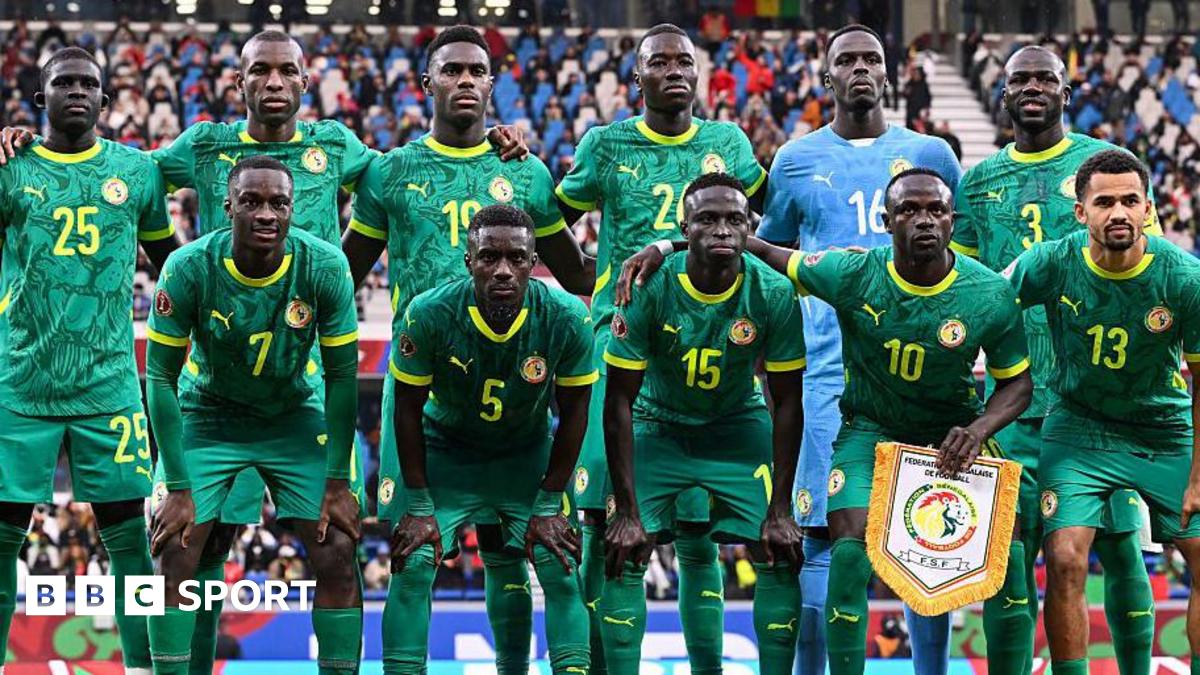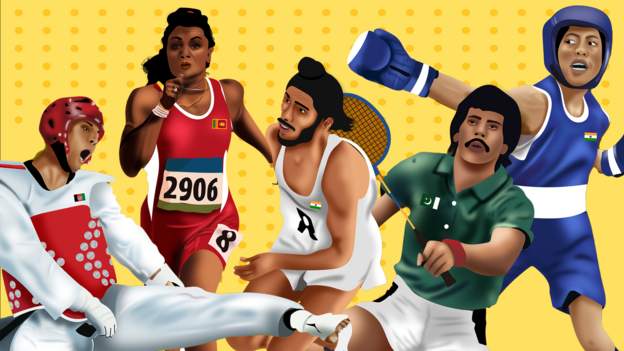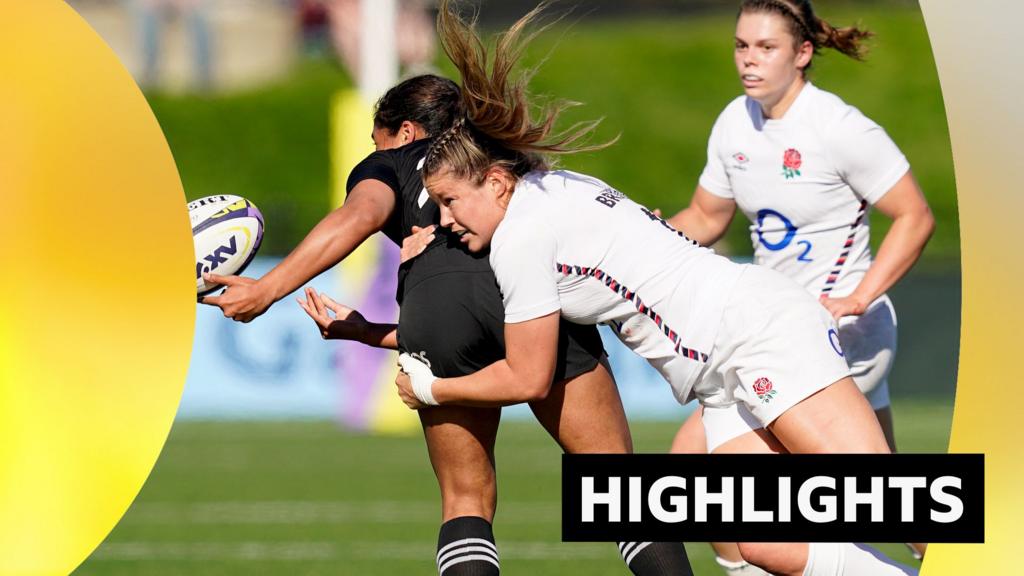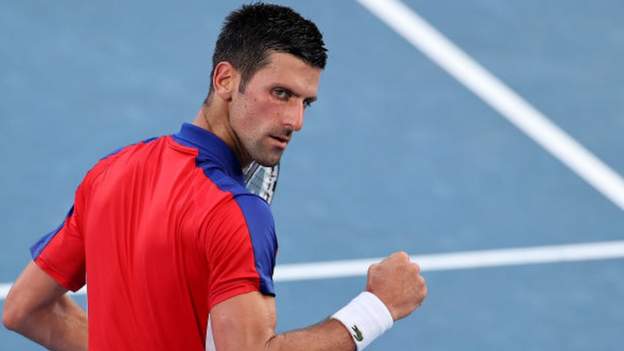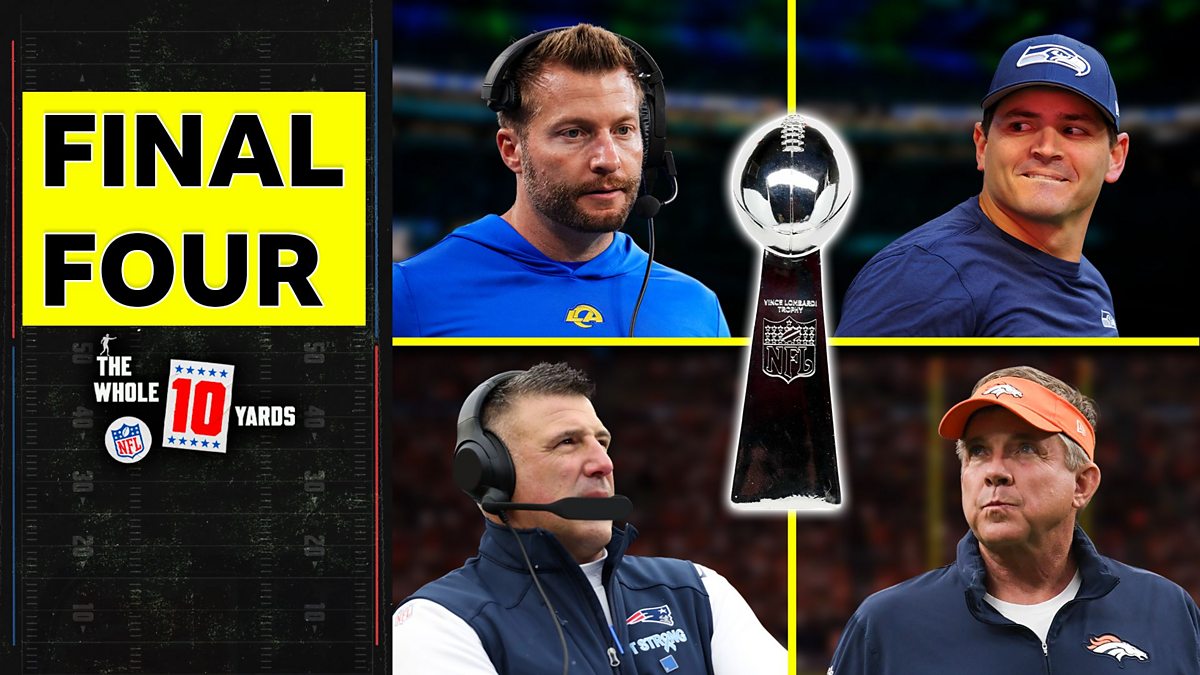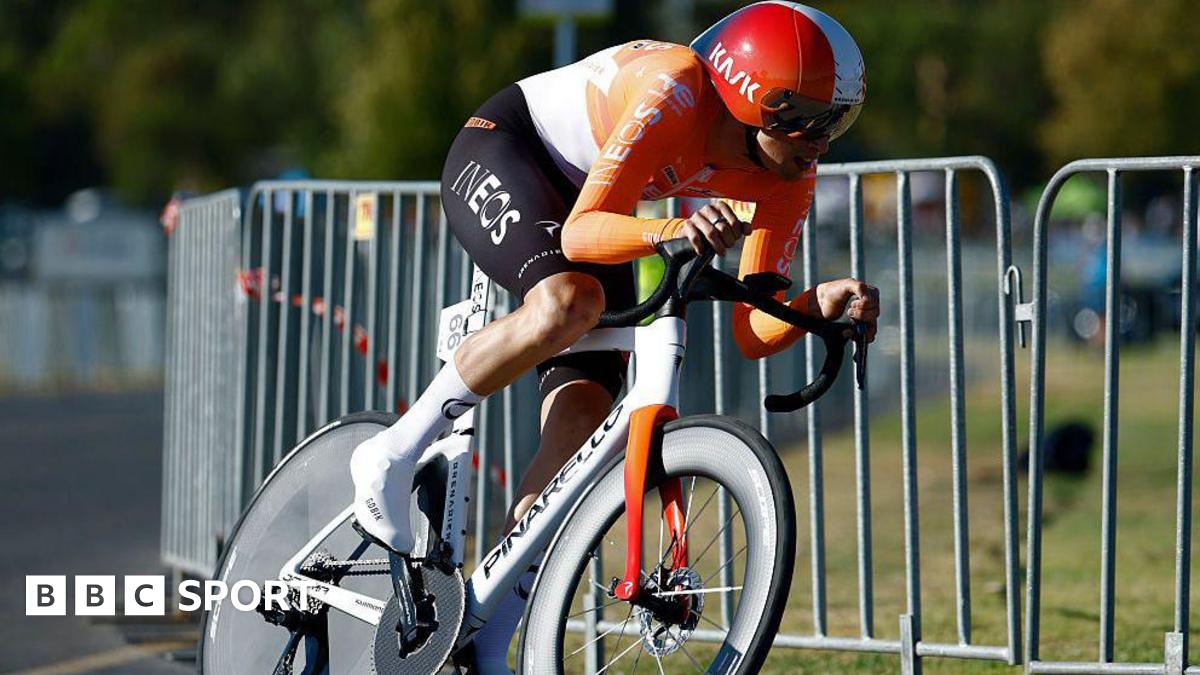To mark the start of South Asian Heritage Month, which runs until 17 August, BBC Sport looks at the lives of five people who made history in their respective sports, but whose stories may not be as widely known.
There’s an athlete with one of the longest winning streaks of all time, a record-breaking boxing world champion and an Olympic medallist who grew up in a refugee camp. What do they have in common? They are all South Asian sportspeople we think you should know more about.
1. Milkha Singh
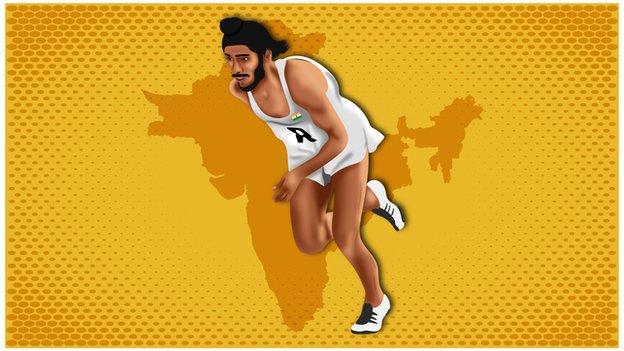
Milkha Singh was born in 1929 in Govindpura, in the Punjab region of what is now Pakistan. He ran the 200m and 400m and was the first South Asian athlete to win a gold medal at the Commonwealth Games in the 400m in 1958. He was also a three-time Olympian, competing for India at the 1956, 1960 and 1964 Games.
During the 1947 Partition of India, which led to the creation of Pakistan, Singh saw his parents and some of his 15 siblings murdered. After they died, he spent time living in a refugee camp before joining the Indian Army at the age of 22, where his sprinting talent was discovered.
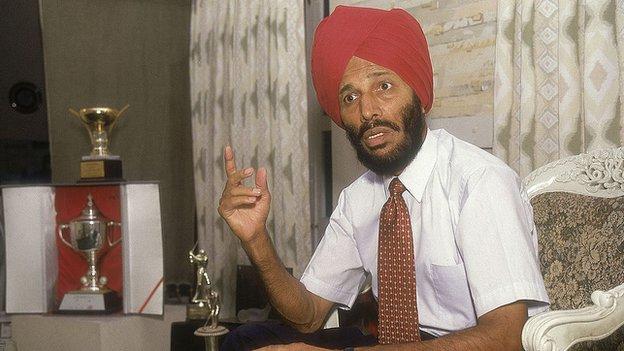
Still new to athletics at the 1956 Olympics in Melbourne, Singh didn’t make it past the heats. It was American Charles Jenkins who won 400m gold that year, so Singh took it upon himself to meet him and ask for his training schedule. And Jenkins gave it to him.
“I decided unless I beat his record [46.7 seconds] I won’t stop,” Singh said.
And two years later, he did beat it. His new personal best stunned people so much, the track he ran it on was remeasured. Singh, nicknamed ‘The Flying Sikh’ by Pakistan’s then-President Ayub Khan, went on to win four Asian Games titles.
Singh is best known for narrowly missing out on a bronze 400m medal at the 1960 Olympics in Rome. Although the heartbreak of fourth place defined his career, it did come with a national record time of 45.73 seconds, which stood for nearly four decades.
He died in June this year at the age of 91 from Covid-related complications.
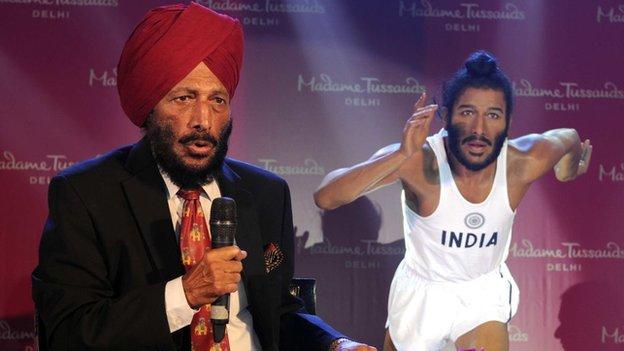
2. Jahangir Khan
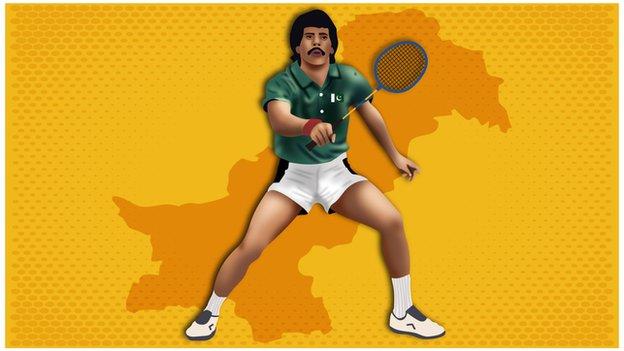
Jahangir Khan, born in Karachi, Pakistan in December 1963 to a Pashtun family from Peshawar, is widely regarded as the best squash player of all time. When Khan was born, doctors told his parents he was physically weak and shouldn’t take part in any physical activity. But in November 1981, at the age of 17, he became the sport’s youngest-ever world champion.
Khan went on to win the World Open six times, the British Open a record 10 times and was ranked world number one for six years.
At the start of his career, Khan was coached by his father Roshan, who had won the 1957 British Open, and then by his brother Torsam, a top-level player who was president of the International Squash Players Association and reached a high of 13th in the world rankings.
When Khan was 15, after missing out on selection for the World Championships, he entered the World Amateur Individual Championship. He became the youngest winner of the tournament in history.
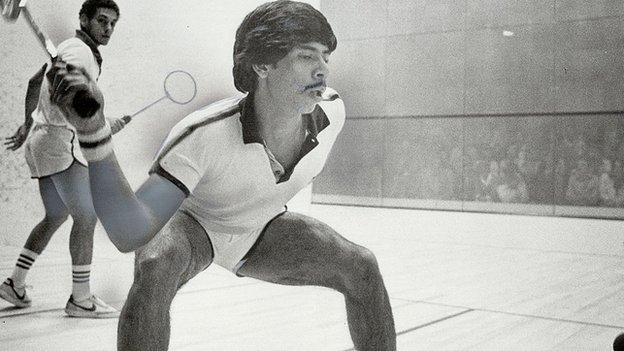
That was in October 1979. The following month, tragedy struck as Khan’s brother Torsam had a heart attack during a tournament in Australia and died at the age of 27. Khan has since said he nearly gave up the sport after his brother’s sudden death.
Instead though, he decided to carry on as a tribute to his brother, to “live out his dream”. And that tribute became a legendary one, as he built an incredible streak of 555 unbeaten matches – one of the longest winning streaks by any professional athlete – from 1981 to 1986.
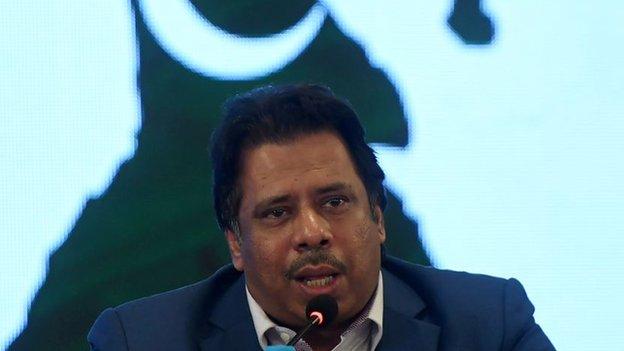
3. Susanthika Jayasinghe
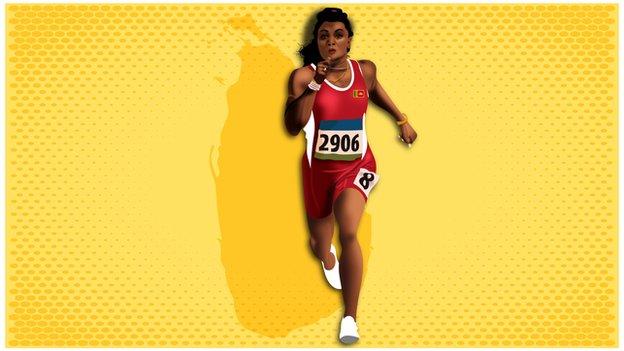
Susanthika Jayasinghe was born in December 1975 in Uduwaka, Sri Lanka, and won a silver medal in the 200m at the 2000 Olympic Games in Sydney. She was the first Asian to win an Olympic or World Championship medal in a sprint event.
Jayasinghe grew up in a small village just outside of Colombo and had no access to a coach or sports kit. To allow her to pursue an athletics career, she enlisted in the Sri Lanka Army Volunteer Force as a teenager. In 1994, aged 18, she joined the Sri Lankan athletics national team and competed at her first Asian Games that October, winning a silver medal.
In 1998, Jayasinghe was suspended from competing when she failed a drugs test, which she claimed was rigged because of her political beliefs, and a fallout with an official from Sri Lanka’s sports ministry
She was later cleared of the offence, as the charge could not be proved beyond reasonable doubt, and was able to race again in time for the biggest event of her career.
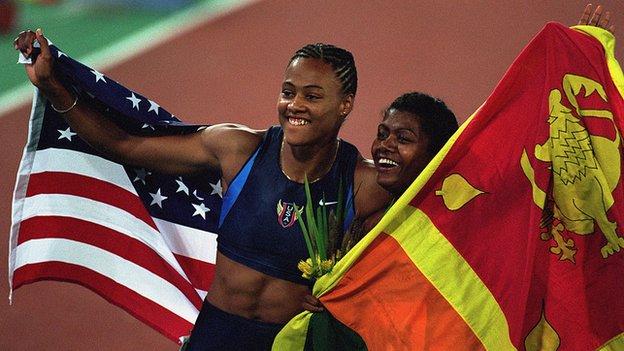
Jayasinghe moved to the US to train for the 2000 Olympics in Sydney, getting into debt in the process.
And it was all worth it when she crossed the line third behind the USA’s Marion Jones and Pauline Davis-Thompson of the Bahamas to become Sri Lanka’s first Olympic medallist since 1948.
Seven years later, Jayasinghe’s bronze became a silver. In one of athletics’ most high-profile doping cases, Jones was stripped of her gold medal after admitted she had taken performance-enhancing drugs.
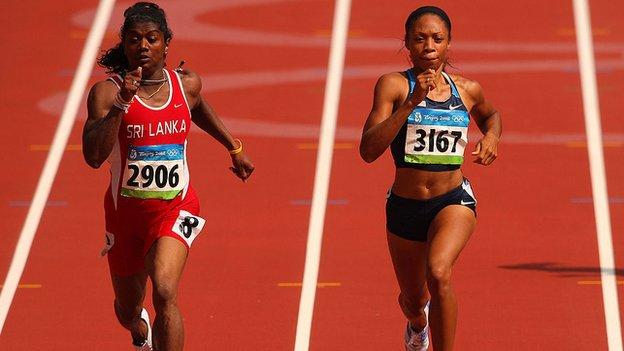
Jayasinghe went on to win a bronze medal at the 2007 World Athletics Championships, as well as two golds at the Asian Athletics Championships the same year. She is still one of only two Sri Lankans to win an Olympic gold medal.
In 2009, she retired to focus on being a mother. In 2016 she was appointed to work as an adviser for the Sri Lankan Ministry of Sports.
4. Mary Kom
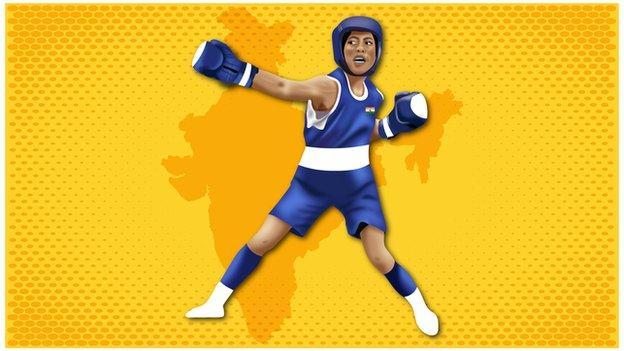
Mary Kom was born in Manipur, India, in 1982, to a family of farmers. Kom is the only boxer in history who has won eight World Championship medals and the only female to win the World Amateur Boxing Championship six times.
Kom is the only woman to have competed in boxing at the Olympics for India, winning flyweight bronze at London 2012. She also won light-flyweight gold at the 2018 Commonwealth Games and has five Asian Championship titles.
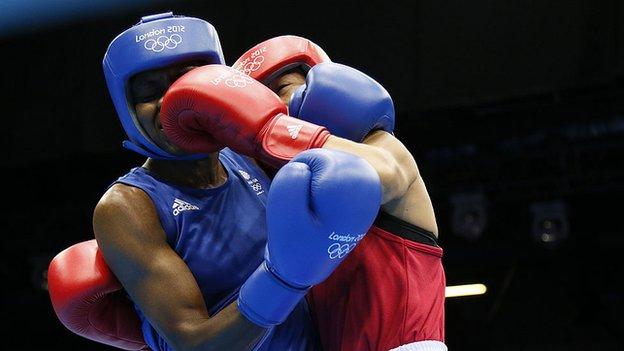
At school, Kom was more interested in athletics than any other sport, and competed in the 400m and javelin. But that changed when Dingko Singh, a fellow Manipuri, returned to their home district after winning boxing gold at the 1998 Asian Games.
Kom was inspired enough to try the sport out, keeping it a secret from her dad, an ex-wrestler, who said boxing would spoil her chances of marriage. But when she won the state’s boxing championships in 2000, her photo appeared in the local newspaper and the secret was out.
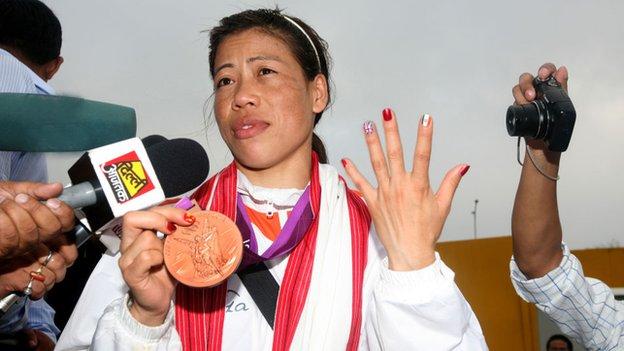
On top of her boxing achievements, Kom is a mother of four, and an MP, after India’s then-president Pranab Mukherjee nominated her as a member of the Rajya Sabha, the upper house of the Indian parliament, in 2016.
In 2020, she became the fourth Indian sportsperson to receive the Padma Vibhushan – the country’s second-highest civilian award.
5. Rohullah Nikpai
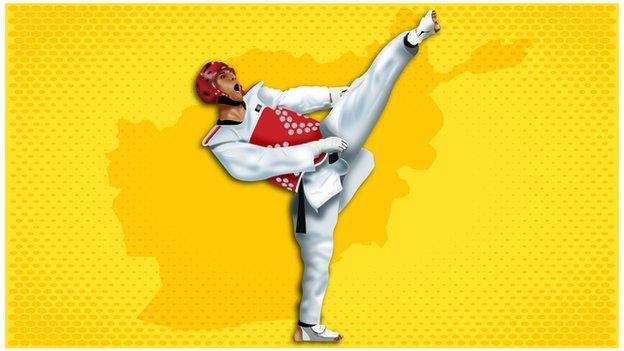
Rohullah Nikpai was born in 1987 in Kabul, Afghanistan, and raised in an Iranian refugee camp after his family fled their home because of a civil war. Taking up taekwondo, he won Afghanistan’s first Olympic medal at the 2008 Games in Beijing, with a bronze medal in the 58kg category, and again in 2012, this time at 68kg.
Nikpai returned to Kabul in 2004 after Afghanistan’s Taliban government had been removed, and worked as a barber while training. He also received an Olympic Solidarity Scholarship, which funds talented athletes with the hope that they will qualify for the Games. It meant he could afford to train in South Korea before heading to Beijing in 2008.
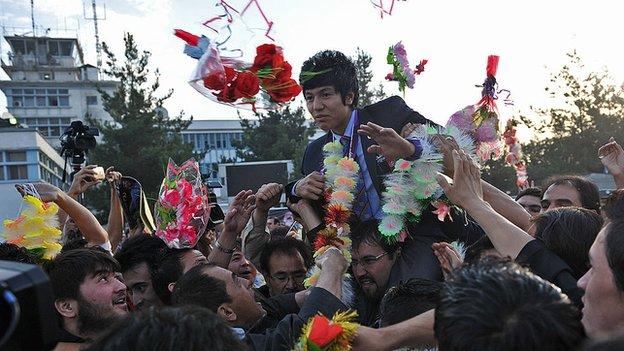
The bronze medal, which Nikpai beat reigning world champion Juan Antonio Ramos to win, was the best Olympic performance by an Afghan. A recording of his win was replayed multiple times on television in Afghanistan, as so much of the population was unable to watch the fight because of an intermittent power supply.
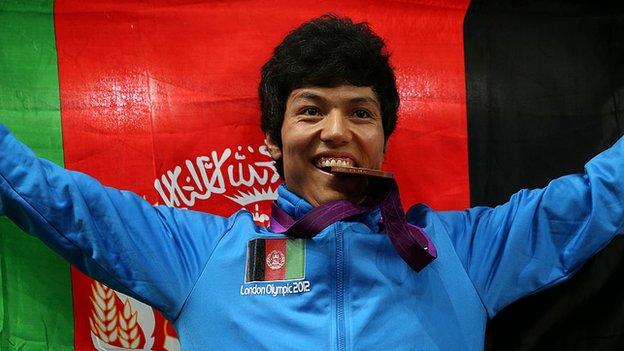
And at the 2012 Olympics in London, Nikpai beat Martin Stamper of Great Britain to pick up another bronze medal in the 68kg division. To this day, Nikpai remains Afghanistan’s only Olympic medallist.


